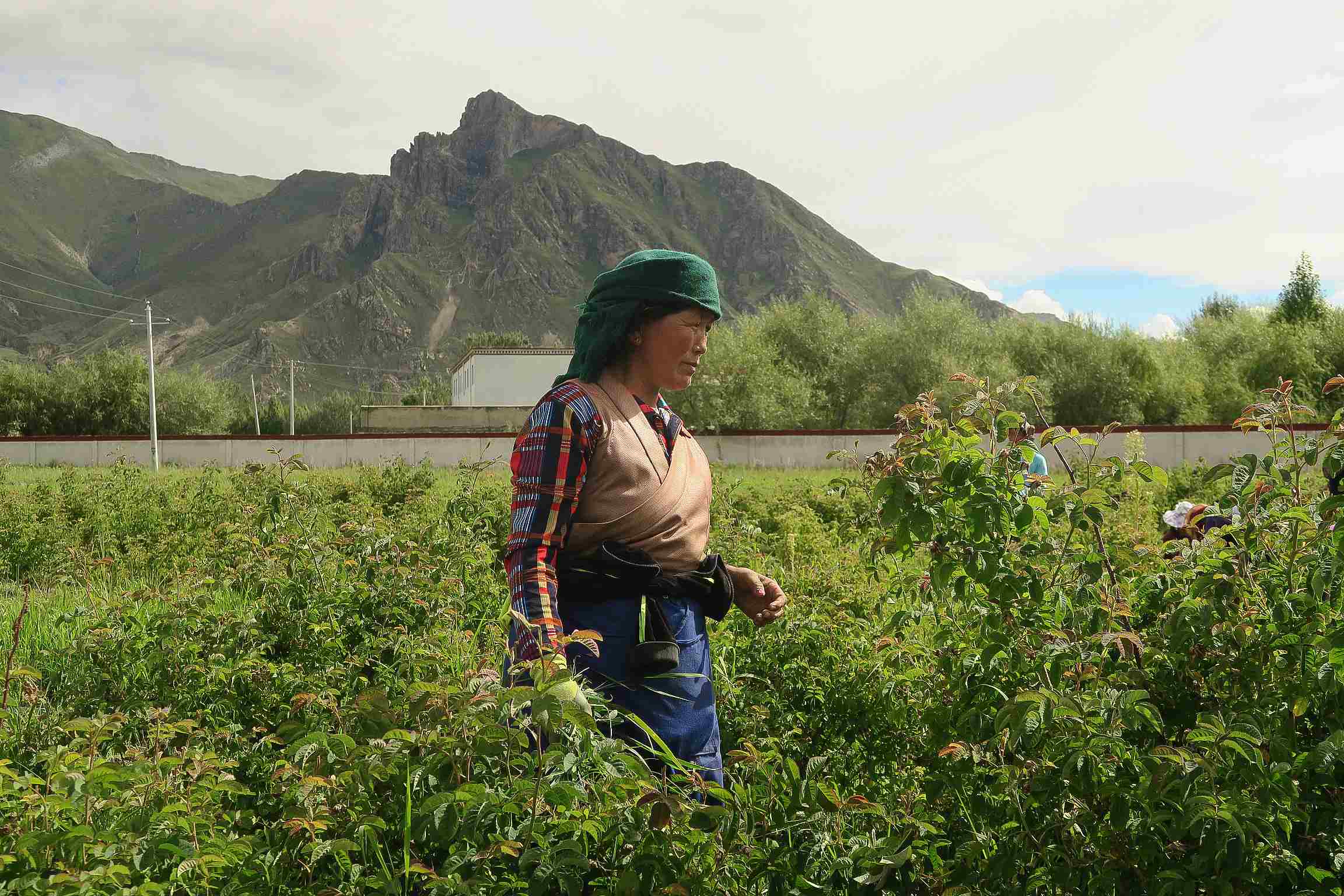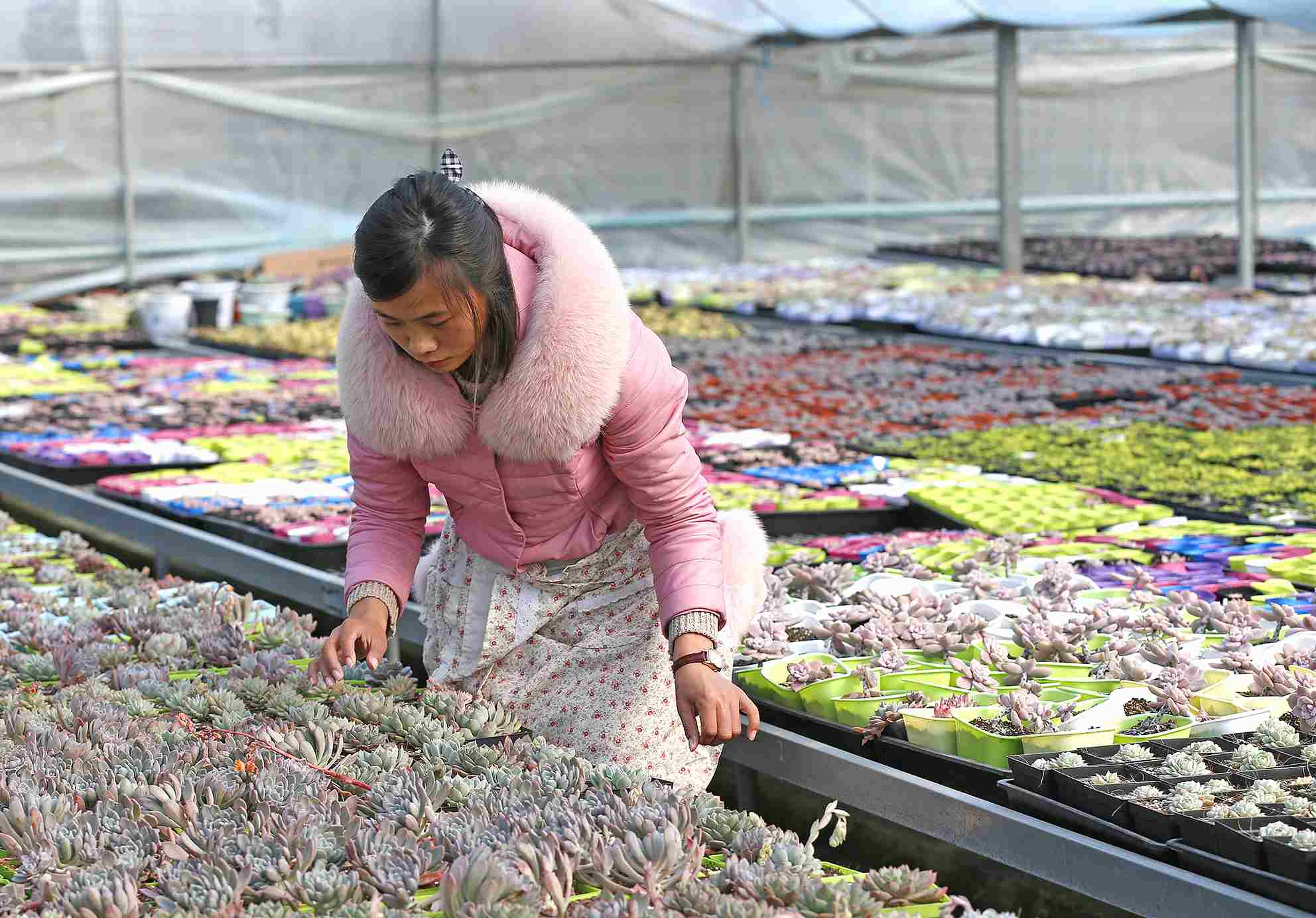
Business
11:32, 16-Oct-2018
Innovative methods used in China's targeted poverty alleviation campaign
Updated
10:26, 19-Oct-2018
CGTN

China has made outstanding achievements in its targeted poverty alleviation campaign in recent years with many innovative measures being taken in various regions and industries. Poverty alleviation has therefore transcended the traditional one-size-fits-all relief model.
Special industrial opportunities
Anxi County, Quanzhou City, in southeast China's Fujian Province has actively introduced a photovoltaic project and launched pilot programs for villages in poverty.
The county's rural houses are suitable for installing power plants on the roofs, as there are no property disputes and less obstruction to the panels. The good air quality is also a plus for generating power efficiently.

Workers install photovoltaic panels. /VCG Photo
Workers install photovoltaic panels. /VCG Photo
As of this May, the county has completed 56 photovoltaic projects and brought a combined annual income of over 1.8 million yuan (260,900 US dollars), benefiting over 2,000 poverty-stricken families.
The project has therefore become an optimal choice for impoverished locals and is playing an active role in creating power load.
Green measures
With its unique geographic environment, Tibet Autonomous Region has concentrated poverty-stricken areas and faces difficulties like the high cost of poverty alleviation.
But with ecological protection measures and subsidies on afforestation being provided by the country's forestry authority, the region has seen fresh opportunities in poverty alleviation.
Siji Jixiang Village in Quxu County, Lhasa City and Tongmai Village in Mirui Township, Nyingchi City are on their way to ridding poverty by introducing green means like afforestation and ecological businesses.

A woman tends a plantation at Siji Jixiang Village in Quxu County, Lhasa City. /VCG Photo
A woman tends a plantation at Siji Jixiang Village in Quxu County, Lhasa City. /VCG Photo
There are a total of 700,000 foresters in Tibet, among which 12,155 foresters are in Lhasa and 1,395 are in Quxu County. The first group of foresters in Siji Jixiang Village have already shaken off poverty with a basic income and dividends.
Located on the bank of the Yarlung Tsangpo River, Tongmai Village is a key part of the region's afforestation project. The village's afforestation subsidies reached 1.14 million yuan (164,700 US dollars) in 2017, the largest source of collective income for the village.

Ecological forest in Nyingchi City, Tibet Autonomous Region. /VCG Photo
Ecological forest in Nyingchi City, Tibet Autonomous Region. /VCG Photo
Last year, Tongmai Village planted 1,247.3 acres of trees, and the villagers there gained a year-end bonus of nearly 20,000 yuan per person by participating in the initiative.
The two villages also tapped fresh business opportunities based on their ecological advantages. A Tibetan medicine planting base, modern dairy farming plant, organic fertilizer processing plant, health industrial park were established to fully exert the natural advantages, effectively driving the employment of the local and surrounding areas.
E-commerce
Suqian E-commerce Industrial Park in eastern Jiangsu Province was established two years ago, which has become a gathering place for e-commerce entrepreneurs, most of whom are farmers in the region.
Some farmers, for instance, seized the opportunity and began to grow succulents – a new favorite for urbanites. More than 8,000 farmers in the region have opened their own online flower stores and earned a lot by growing succulents and selling them online.

A farmer grows succulents at a greenhouse in Suqian City, Jiangsu Province. /VCG Photo
A farmer grows succulents at a greenhouse in Suqian City, Jiangsu Province. /VCG Photo
E-commerce has helped save labor, rental and other costs, which brings better gross margins and cheaper prices for customers. Some can receive over 3,000 orders per day, bringing in over 12 million yuan a year.
Meanwhile, over 280 well-known Internet companies such as Jingdong, Dangdang, Xiaomi and Tuniu have established a pilot base in the park.
In 2016, the total e-commerce transactions in the park reached 20.2 billion yuan, an increase of 94.98 percent compared to a year ago. The total fiscal income reached 550 million yuan, up 45.12 percent year-on-year. Also, 14,400 new jobs were created and the total employment amounted to 26,000 in the same year.

SITEMAP
Copyright © 2018 CGTN. Beijing ICP prepared NO.16065310-3
Copyright © 2018 CGTN. Beijing ICP prepared NO.16065310-3